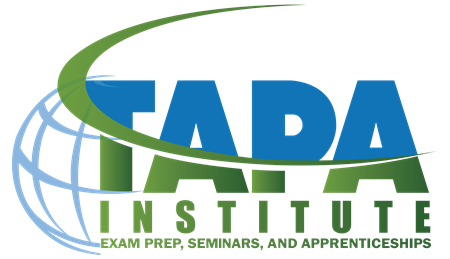Building Strong Foundations for Success with CPA Accountant Skill Assessment
When trying to become a certified public accountant, you do not just open a textbook, and that is the beginning of it all; you know where you are at this time. Thoughtful analysis of strengths, weaknesses, and preparation for the conditions of rigorous examination is the basis of a realistic study process. This is one of the steps that are frequently neglected, though it has a determining influence on the speed and efficiency of a candidate in terms of his or her advancement. It is hard to spend time, energy, and resources on wisdom when you are unaware of your present competence level. TAPA Institute’s CPA accountant skill assessment enables those in their aspiring professions to focus their study more effectively, waste less time on those areas they already have control over, and gain confidence as a result of a goal-oriented, data-driven approach.
Understanding Your Current Proficiency
Emphasis on diagnosing your level of current conceptual command is an emphasis in great programs before committing to the review of the content. It entails measuring the comfort in auditing, financial reporting, taxation, regulation, and analytics, not in a conceptual sense, but in the face of timed questions and simulations. This evaluation is, in short, a mirror: it reminds you of the actual preparedness and points out the areas of skill clusters that still have to be reinforced. The absence of such clarity can cause the candidate to spend time that he or she does not require, as he or she tends to focus on the strong areas and ignore the areas that require some development.
Moving Beyond Pure Memorization into Application
The modern accounting examinations are modeled based on situational thinking and not memorization of facts. The applicants have to interpret financial statements, make decisions under time pressure, and use rules in changing situations. Perceiving accounting definitions is not a good enough thing to be successful; internalization of principles for organized analysis, quick problem solving, and reasoning where the test is right is needed. Such a transition to usage and analysis requires more than mere studying on the surface; it requires testing aids, simulation tasks, and guidance.
The Role of High-Impact Study Materials
The ability to summarize materials of heavy examination into brief and command-based structures can dramatically change the efficiency of the study. Simplified scripts or outline formats are concerned with thorough knowledge as opposed to huge notes. They assist in reinforcing major ideas in formats that are easily understood and create more time to practice and contemplate. They are materials that have become part of most of the leading preparation providers to assist the candidates in integrating theory and practical decision-making, and also experience less burnout.
How Personalized Coaching Elevates Performance
One-on-one mentoring offers responsibility and an individual approach. The effect is magnified when you have a skilled teacher who responds to your changing needs, correcting your constant mistakes, teaching you to analyze the problem, and preparing your approach to exams. With established experience, a mentor can help demystify complicated topic areas and have you on course even when studying becomes hard. The selection of the right guide can either be frustrating or lead to breakthroughs.
Why Stress Management is Essential
The psychological pressures of training to pass high-pressure professional licenses are not appropriately taken into account. Activation of anxiety or overwhelm may interfere with memory, attention, and problem-solving. An effective model incorporates such stress-savvy approaches as coaching fitness of mindset, relaxation exercises, routines on the eve of the test, and even cognitive restructuring approaches. These assist in keeping the mind sharp and emotional stability, and in being able to perform up to your best when it comes to exams.
Putting It All Together: A Holistic Training Model
As assessment, content frameworks, focused coaching, stress resilience tools, and practice simulations interact, a learning ecosystem is developed holistically. You get the continuous feedback loops as opposed to having a separate, singular study session, the reinforcement of new habits, and the capacity to quickly adjust to new weaknesses or new situations. This planned business model encourages steady advancement and minimizes panic at the last moment.
Meet the Expert Behind the Approach
An unusual clarity comes with a program that has been designed by a practitioner with a great depth of subject-matter knowledge and with real-world professional qualifications. Being a founder of a reputable training school, Dr. Sabine Charles also relies on more than 8 years of experience in the fields of internal audit, risk advisory, forensic accounting, and global consulting. Her leadership approach makes sure that the content is not commoditized but highly contextualized and in line with reality on the competencies that accountants need in their daily work. Coupled with a successful mentor process, she and her team at TAPA Institute provide the extra that the review does not; they provide transformation.
Customized Planning That Fits Your Life
One-to-one planning incorporates your living, professional, and academic history and speed of learning. It sets the hours to fit in the study time, blocks to review strategically and provide breathing room, and when the practice exams are to be initiated. Beginning with a diagnostic assessment, the plan will be developed through weekly check-ins and real-time modifications. It is not that of a strict form, but of fostering everyday sustainability, which leads you to a steady goal of preparedness.
Immersive Intensive Learning Options
Intensive courses or CPA boot camps are dramatic accelerators for those who want to get a lot of momentum in a short period of time. During these sessions, the participants go through full-day exam sims, discuss common pitfalls in groups, and participate in a timed question drill session, and they are able to interact with their peers, which hones their analytical thinking. The day-in, day-out exposure and shared dynamism lead to increased memory and confidence as excellent leverage in cases where the exam time is near.
Teaching Based on Emotional Intelligence and Judgment
The contents embedded in the training curriculum do not just involve technical training; they involve decision-making, ethical reasoning, leadership, etc., and communication skills that are based on emotional intelligence. These softer skills play a vital part in the employment sector, aiding applicants to face cases and situations with rationality, clarity, and calm. Courses with built-in aspects of EQ-based education provide a competitive edge over the simple passing of the exam.
Simulation-Driven Practice to Close the Gap
Simulations, case studies, and mock exams are not items that are optional items but core. They expose them to actual exam conditions, which make them less surprised as well as develop stamina. It is not only a matter of repetition but rather a matter of thinking about yourself: what kind of questions are you always fooled by? Where do you lose time? What are the pitfalls in this way of reasoning? The secret of incremental, strategic improvement is an honest performance review.
Sustaining Discipline and Motivation
The prolonged months of studying to pass a professional exam are demotivating. One of them is to establish milestone objectives: an example is a goal on the result of practice tasks, passing certain modules, or an increase in speed. Making sure to track small wins, reward them, and keep close contact with your overall career purpose keeps morale high. Discipline may be reinforced by the strong support community, which is peers or mentoring cohorts, and which can significantly promote high levels of accountability.
Final Stretch: Strategic Pre-Exam Preparation
With the approach to the test day, the transition from content retention to minutiae and preparation of the mind occurs. Avoid cramming new topics. Rather, pay attention to major summaries, error accounts, relaxation exercises, and ritualizing the routine: sleep well, consume appropriately, get to the test early, and minimize surprises on the test day. What is more important presently is mental clarity rather than memorizing new facts.
Why This Method Stands Apart
What is unique about this framework is that it combines an evaluation, effective learning content, professional mentorship, simulation practice, and emotional strength coaching all in a coherent program. Instead of wasting time in memorizing or isolated study periods, this approach will put resources of time and energy directly in the right place with professional hands-on accountability.
Why This Provider Delivers Results
Dr. Sabine Charles has over fifteen years of industry experience and unique multi-certification and holistic knowledge in audit, risk, academic, and leadership coaching. By keeping a close evaluation methodology, using emotionally intelligent learning tools, and providing personalized coaching that develops with you, her institution has continued to have high success rates. Learning philosophy transforms the hypothetical possibility into professional abilities.
How to Begin Your Pathway to Certification
Begin with a personalized diagnosis or individualized free consultation session. In that first session, you will be provided with a unique plan, such as your study schedule and main milestones, contact points with tutors, and proposal content modules. This map is then implemented in accountability per week, live coaching sessions, feedback in practice sessions, and stress-smart management.
In Closing: Transform Study Into Strategy
Professional certification is not only a question of learning by rote but also the result of thorough planning and diagnostics of each individual, the guidance of a professional mentor, and even a strict form of training. Assessing yourself at an early age gives you a road map, and polished studying tools and stress resilience make sure that whatever you do is efficient and tough. With a professionally guided CPA accountant skill assessment based on simulated conditions of exams and performance feedback, candidates not only pass successfully but also acquire confidence, focus, and preparation towards their careers.

